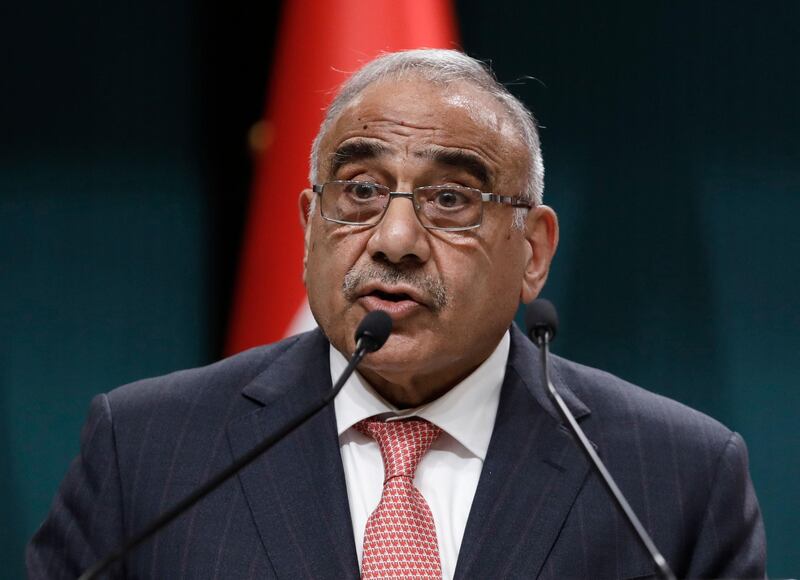Iraqi Prime Minister Adel Abdul Mahdi on Monday moved to reduce the power of Iran-backed militias, forcing them to be more closely integrated into the country’s army.
The militias in the Popular Mobilisation Forces (PMF) helped a coalition led by the US and Iraq to drive out ISIS militants. The militias fall under the umbrella of Iraq's Popular Mobilization Forces, a collection of mostly Shiite militias that fought the Islamic State group and were incorporated into the Iraqi armed forces in 2016. Together they number more than 140,000 fighters
They have broad influence in Iraqi politics. An alliance of fighters and leaders finished second in last year’s election.
The forces are directly under the command of Mr Abdul Mahdi, who has decreed that they take up political or paramilitary roles, not both.
A deadline of July 31 has been set for the new rules.
Kataeb Hezbollah, one of the most powerful of the militias, was among those welcoming the order, saying its forces within Iraq would implement it. But it added that its men fighting outside Iraq would not abide by the new rules – an apparent reference to the group's fighters taking part in the war in neighboring Syria alongside Syrian President Bashar Al Assad's forces.
Members of the group comprised the majority of protesters outside the Bahraini Embassy in the Iraqi capital that was stormed this week in anger over Bahrain's hosting of a US-backed conference to promote peace between Palestinians and Israelis. An official with the group denied they stormed the embassy.
Populist Iraqi Shiite cleric Muqtada Al Sadr also welcomed the move by Abdul-Mahdi, saying his faction known as the Peace Brigades, or Saraya Al Salam in Arabic, would implement it. In a tweet, he described the decision as an important "first step" towards building a state, but he also expressed concern that the decision would not be implemented properly.
Qais Al Khizali, the leader of one of the most powerful Iranian-backed Shiite militias in Iraq, also tweeted that the move to integrate the PMF in the armed forces is a step in the right direction.
The order came two weeks after three mortar shells landed on the Balad military base, the first of several unclaimed attacks on bases in Iraq hosting US troops, and on a site used by an American energy firm.
Officials blamed the militias for one of the incidents but Iran has not commented.
More than a year after elections, Iraq's leaders have yet to form a government.
Members of the UN Security Council visited Iraq at the weekend to support its recovery and international efforts to hold ISIS accountable for war crimes.
Mr Abdul Mahdi held meetings with Kurdistan Regional Government president Nechirvan Barzani and other politicians and officials to continue efforts towards stabilisation.
Agencies contributed to the reporting of this story





